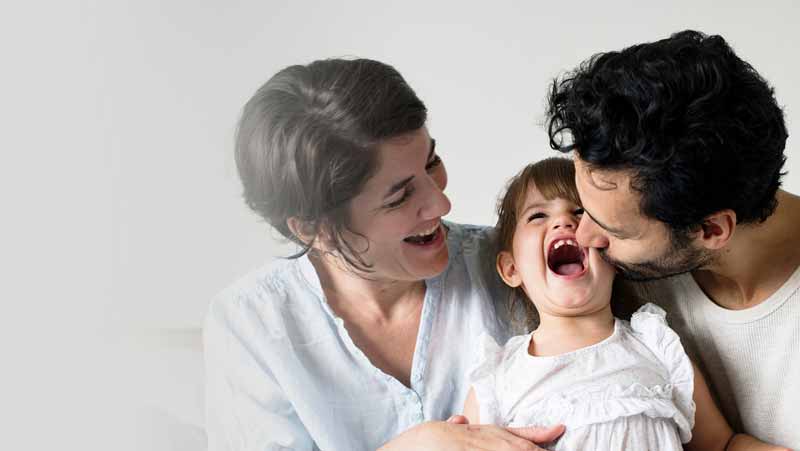Young children and adolescents can respond differently to divorce.
A global review of 60 studies challenges the claim that joint physical custody reduces the effect of divorce on child development only in low-conflict situations.
Psychology experts have found that divorce often has noteworthy effects on children.
At Right Start Inc, we know that every child is unique, and will inherently react to the news differently.
In general, though, the following are common issues that children may exhibit:
- Regression
- Changes in Eating and Sleeping
- Risky Behaviors
Children from divorced homes may also experience more externalizing problems, such as conduct disorders, delinquency, and impulsive behavior than kids from two-parent families.
In addition to increased behavior problems, children may also experience more conflict with peers after a divorce.
How does divorce affect social and emotional development?
Children of divorced parents are more likely to experience negative feelings, lower self-esteem, behavioral problems, anxiety, depression, and mood disorders.
Studies have also revealed that boys are more likely than girls to experience emotional disturbances. Divorce also tends to have social effects, for both male and female children and adolescents.
Mental Health Problems
A recent 2019 study suggests that regardless of age, gender, culture or age, children with divorced parents experience psychological problems at a higher degree than their peers with married parents.
In particular, reports have indicated increased rates of anxiety (specifically separation anxiety) and depression.
Is the effect of divorce on child development less in joint physical custody children because their parents are better at parenting?
Nine of the sixty (60) studies reviewed the quality of child-parent relationships, examining whether divorce has a milder impact on child development in joint physical custody families because children and parents have better relationships and/or because the parents have better parenting skills.
Five of these nine studies found that, even when controlling for parent-child relationships, children did as well or better in joint physical custody families on all measures. In two studies, children did worse on one measure and better/equally on all the others.
Can divorce cause trauma in a child?
There is no doubt that the conflict and chronic stress involved in divorce is one of the leading causes of trauma in young children and is deemed to be a very significant ACE (Adverse Childhood Experience).
How Does Divorce Affect Children’s Education?
It’s not uncommon for children’s academic performance to change after learning that their parents are getting divorced.
They may struggle to keep up or focus on assignments. They might also feel apathetic about school (this is especially common for teenagers) and wonder what the point is in continuing to try.
What age group is most likely to blame themselves for their parents’ divorce?
Generally, preschoolers (ranging from 2 to 5 years old) tend to blame themselves for their parents’ divorce.
These children are too young to grasp the meaning of divorce and may become confused and fearful of losing their parents in terms of the roles they understand them to play in their everyday lives.
How can I help my child cope with divorce?
- Stay involved in your child’s life.
- Work hard to co-parent in a civil manner.
- Be supportive of the time your child spends with the other parent.
- Limit negative things said about the other parent.
- Communicate honestly.
- Help your child express their feelings.
Although the outcomes mentioned above may seem scary, it is essential to remember that they do not occur in all children.
Additionally, the good news is that despite these outcomes, there are beneficial steps that parents and caregivers can take to reduce any stress imposed on their children, no matter how old they may be.
Co-parenting
Peaceful co-parenting is central to decreasing a child’s distress. There are clear links between the conflict between parents and behavioral problems in young children.
Co-parenting successfully with your ex-spouse is vital in maintaining a healthy and happy home environment in both houses.
Avoid putting children in the middle
You must be aware and conscious of how your communication with your ex-spouse affects your kids. Avoid having them pass messages between you and your ex-spouse.
Do not ask them whether they would prefer to spend time with you or your ex-partner. If there is a special school event or club activity, decide amongst the adults who will attend without putting the responsibility on your child to decide.
This forced choice and ‘relay station’ treatment can cause anxiety and worry, particularly in introverted school-age children.
Overall, divorce does seem to have an impact on child development and psychosocial health in children and young adults. Particularly when the process is contentious, or the divorce comes up unexpectedly, divorce is a strong environmental risk factor for fostering appropriate functional and life skills.
That being said, parents and families can take specific steps to minimize the impact of these changes.
In a multitude of cases, the life of a child with two happy parents following an amicable divorce can be full of positivity, health, and success.

